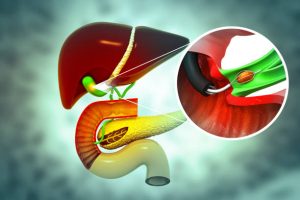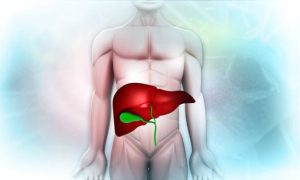
Conceptual of woman suffering stomach ache, menstrual pain, period cramp or abdominal pain during pregnancy.
Stomach pain, also known as abdominal pain, is discomfort or aching felt anywhere between the chest and groin. It can range from mild to severe and may be short-term (acute) or ongoing (chronic). The causes can vary from minor digestive issues to serious health conditions.
Causes:
- Indigestion: Often caused by overeating, spicy foods, or stress.
- Gas: Trapped gas in the intestines can cause cramping and bloating.
- Constipation: Difficulty passing stool can lead to discomfort and cramping.
- Gastritis: Inflammation of the stomach lining caused by infections, excessive alcohol, or certain medications.
- Ulcers: Open sores in the stomach or small intestine caused by H. pylori bacteria or long-term NSAID use.
- Gastroenteritis: Viral or bacterial infections that cause inflammation of the stomach and intestines, leading to nausea, diarrhea, and pain.
- Food Poisoning: Eating contaminated food can result in stomach pain, vomiting, and diarrhea.
- Gallstones: Hard deposits in the gallbladder that block the bile ducts, leading to sharp pain.
- Appendicitis: Inflammation of the appendix that requires immediate medical attention.
- Irritable Bowel Syndrome (IBS): A chronic condition causing cramping, bloating, diarrhea, and constipation.
- Kidney Stones: Crystallized minerals that form in the kidneys, leading to severe pain when passing.
- Acid Reflux: Stomach acid backing up into the esophagus can cause burning pain and discomfort.
Risk Factors:
- Diet: Eating too much, consuming spicy or fatty foods, or food allergies.
- Medications: Certain painkillers, antibiotics, and other medications can irritate the stomach.
- Stress: Emotional stress can trigger digestive problems.
- Sedentary Lifestyle: Lack of physical activity can slow digestion and increase the risk of constipation.
- Underlying Conditions: Digestive disorders such as GERD, IBS, and Crohn’s disease.
Symptoms:
- Cramping or Sharp Pain: May be localized or spread across the abdomen.
- Bloating: Feeling of fullness or swelling in the abdomen.
- Nausea or Vomiting: Often accompanies stomach pain.
- Diarrhea or Constipation: Changes in bowel movements may occur.
- Burning Sensation: Common in acid reflux or gastritis.
- Fever: Could indicate infection or inflammation.
- Loss of Appetite: Accompanies conditions like gastritis or food poisoning.
- Blood in Stool or Vomit: A sign of a more serious condition like ulcers or gastrointestinal bleeding (requires immediate medical attention).
Prevention:
- Healthy Diet: Avoid overeating, greasy foods, and known irritants like alcohol and caffeine.
- Proper Hydration: Drink plenty of water to aid digestion.
- Regular Meals: Eating smaller, more frequent meals can help prevent stomach discomfort.
- Exercise: Regular physical activity aids digestion and prevents constipation.
- Stress Management: Practice relaxation techniques like deep breathing, yoga, or meditation.
- Avoiding Smoking and Excessive Alcohol: Both can irritate the stomach lining and increase the risk of ulcers and gastritis.
- Proper Food Handling: Wash hands and cook food thoroughly to avoid infections.
Diagnosis:
- Physical Examination: A healthcare provider will check for tenderness, swelling, and other symptoms.
- Blood Tests: Can detect infections, inflammation, or anemia.
- Stool Tests: Check for blood, infections, or other abnormalities.
- Imaging Tests: Ultrasound, CT scan, or X-ray can help visualize issues like gallstones, appendicitis, or bowel obstructions.
- Endoscopy: Used to examine the esophagus, stomach, and upper part of the small intestine for ulcers, inflammation, or other abnormalities.
Treatment:
- Medications:
- Antacids: For acid reflux or indigestion.
- Antibiotics: For bacterial infections like H. pylori or gastroenteritis.
- Laxatives: For constipation.
- Antispasmodics: For conditions like IBS to reduce cramping.
- Pain Relief: Over-the-counter painkillers like acetaminophen (avoid NSAIDs like aspirin as they may worsen stomach problems).
- Dietary Adjustments: Avoiding trigger foods and adopting a balanced diet.
- Fluids: For dehydration due to vomiting or diarrhea.
- Surgery: Required for serious conditions such as appendicitis, gallstones, or hernias.
- Probiotics: May help restore healthy gut bacteria after an infection or during digestive disorders.
Precautions:
- Avoid Irritants: Identify and avoid foods or habits that trigger stomach pain.
- Seek Medical Attention: If the pain is severe, persistent, or accompanied by other alarming symptoms like blood in stool or vomiting, immediate medical care is needed.
- Proper Use of Medications: Avoid long-term use of NSAIDs without medical supervision, as they can cause stomach issues.
Self-Care:
- Warm Compress: Applying heat to the abdomen may soothe cramping.
- Ginger or Peppermint: Both can help reduce nausea and bloating.
- Hydration: Drink plenty of fluids, especially if experiencing vomiting or diarrhea.
- Rest: Resting can help the body recover from infections or other causes of stomach pain.
- Eat Light: Stick to bland foods like rice, bananas, applesauce, and toast (the BRAT diet) if suffering from nausea or an upset stomach.
Disclaimer:
Stomach pain can range from minor to serious conditions. Self-treatment may provide temporary relief for mild cases, but persistent or severe pain, especially if accompanied by other symptoms (e.g., fever, vomiting, blood in the stool), requires medical attention. Always consult a healthcare professional for accurate diagnosis and treatment. Avoid prolonged use of over-the-counter medications without medical advice, as they may mask underlying conditions.








